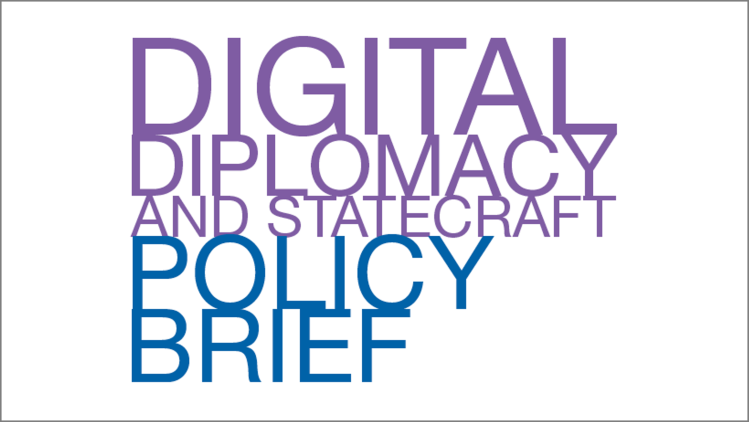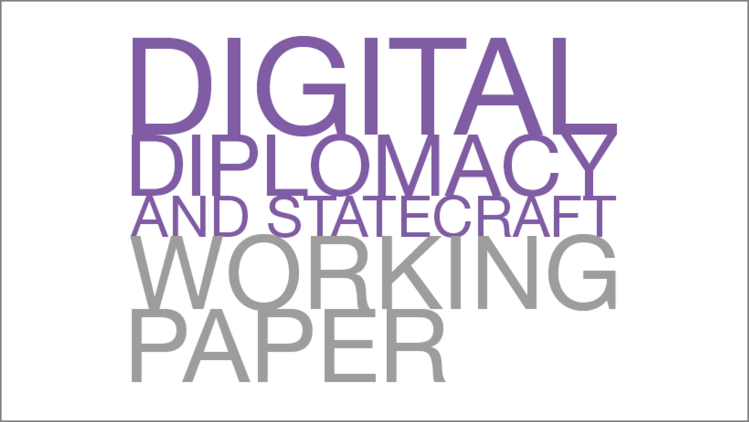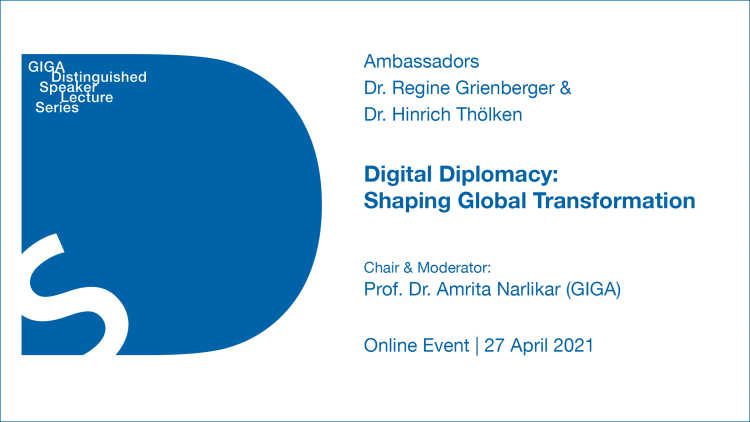- Home
- Research & Transfer
- Research Projects
- Digital Transformation Lab (DigiTraL), Phase I: Digital Diplomacy and Statecraft
Digital Transformation Lab (DigiTraL): Digital Diplomacy and Statecraft
The Digital Transformation Lab (DigiTraL) is funded by the Federal Foreign Office. Its first phase “Digital Diplomacy and Statecraft” focuses on how digitalisation offers new opportunities, challenges, and instruments for foreign policy. It will identify the options and (security) threats of digitalisation to develop timely responses of (digital) diplomacy.
FFO, 2021-2024
Cooperation Partners
Guest Fellows
Working on “Social Media and Politics” | |
|---|---|
Working on “Software Security Standards: The Core of the Quad (Cybersecurity Partnership)” | |
Working on "EU digital diplomacy and the Global South" | |
Working on "Peripheral Countries’ International Insertion in a Changing Global Order: Digital Diplomacy in Argentinian Foreign Policy” |
Working Papers and Policy Briefs
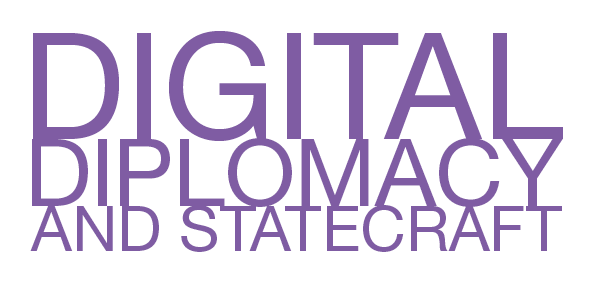
Head
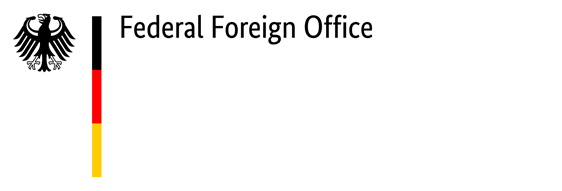
Research Questions
The project will serve as a resource for researchers to better understand the connections and implications of global digitalisation, and for diplomats and practitioners to handle and shape these transformations effectively. It will investigate both the challenges and opportunities that emerge from two trends.
On the one hand, digital platforms are facilitating the emergence of a bigger set of actors with amplified voice. This “flattening” effect of digitalisation complicates the process of foreign policy making and diplomacy and its implementation for all states. On the other hand, interdependence gets weaponised and some states emerge as hubs of information networks, power imbalances between states increase.
“Digital Diplomacy and Statecraft” will analyse the implications of fragmentation of the global digital space in an era of increasing decoupling and growing nationalism. It will study the possibilities of reforming and updating multilateralism to work in a digital age. In doing so, it will explore current debates on connectivity, data protection, digital interference, and governance.
Contribution to International Research
As digitalisation is a global phenomenon, it needs multilateral regulation, and it needs to take into account actors from around the world. However, the actions of countries, companies, and citizens from the Global South have hitherto been a blind spot for most analyses on the topic. The GIGA, with its long-standing expertise in these regions and on global issues, seeks to correct the existing imbalance. The project can contribute to advancing standard-setting debates and to developing ways for adequately regulating the informational space at the global level. It is one of our central aims to help raise awareness of various countries in Asia, Africa, Latin America, and the Middle East as possible partners and shapers of digitalisation, and explore ideas for successful cooperation amidst intense global competition.
Research Design and Methods
The project maps existing academic and policy debates in this area, and also explores the approaches taken by different countries and stakeholders to harness digitalization. It seeks to build a network of scholars, policy-makers and non-state actors from the Global South in this area. The project is deliberately conceptualized as a multi-disciplinary and multi-method one.




